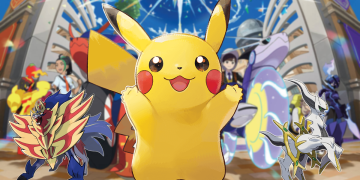There’s a bit of a shake-up in the VR developer circles lately. Devs are having a tough time getting their games to stand out on the Quest platform, and they’re all turning to Meta for some assistance, or they might find themselves in hot water. Let’s dive into the main gripes, potential solutions, and why this conversation is crucial.
The merging of App Lab
The problem
I’ve never been a fan of how the Meta Store treated indie developers by stashing them away in the secondary "App Lab" section. To me, it seemed unfair to split developers into ‘first-class’ and ‘second-class’ categories. Everyone should have an equal chance to bring their game to the public and fingers crossed, see it become a hit. So, when App Lab got dissolved and all games joined the main Quest Horizon Store, I was stoked.
However, it seems like the Horizon Store wasn’t quite prepared for this big shake-up. App Lab was a mixed bag of cool indie games and some not-so-great projects. Post-merge, a lot of users have been griping about their store homepage being cluttered with low-quality games. Some even complained about getting mediocre content suggestions. One person sarcastically mentioned being prompted to try "Orilla Tag," which was obviously aping "Gorilla Tag" (can’t help but wonder if there’s also a "Rilla Tag," "Illa Tag," etc., possibly leading to the notorious "G"). Clearly, the system that’s meant to recommend games is missing the mark, pushing forth undesirable content rather than boosting the indie gems we should discover.
Let’s not forget the search engine debacle. Finding games using just a snippet of their name can often be a hassle. Sometimes the game you want isn’t showing up, or it isn’t first in line. If you’ve only a faint memory of a game title from a YouTube video a couple of days back, you’re likely out of luck. The result? Lost sales for indie developers.
A possible solution
Fixing the search capabilities seems like an easy win. Meta should prioritize this. We know search algorithms aren’t some uncharted territory. Given Meta’s resources, it should be a breeze to tackle this.
The recommendation engine, however, is trickier. We’ve been down this road since the Gear VR era when users got bizarre suggestions like "Since you enjoyed Arizona Sunshine, try Hello Kitty Word 2000," which became a joke on Reddit. It’s high time this gets sorted, though it’s not as straightforward as fixing the search tools.
There’s no one-size-fits-all in recommending content to users, but multiple tactics exist. Things like content type, length, reviews, and a user’s history can all weigh differently in the equation. Meta has expert AI chops—seriously, just look at their Llama models. They should be able to nail this.
Moreover, figuring out how to balance high-quality games with hidden gems is another puzzle. One might think allowing all games and spotlighting those from certified developers could work, yet this would shove smaller indie titles back into the shadows like before with App Lab. I propose a hybrid approach—customize the store’s front page for each user, mainly showcasing well-known titles while occasionally sprinkling in hidden gems. Track those under-the-radar games, too—if they gain traction and positive reviews, bump them up. Conversely, games disregarded by players, regardless of the studio, should see their visibility diminished.
The visibility of Horizon Worlds
The problem
Meta’s push to excel in the Social VR space has been an ongoing saga, culminating in Horizon Worlds. Despite its fanfare-filled launch, Horizon hasn’t exactly captured the hearts of many users—VRChat and Rec Room consistently outshine it. And with Meta pouring tons of resources into Horizon in hopes of ruling the social XR realm, it feels like we’re constantly being coaxed into it. Open the Meta Horizon app, and it’s all about Horizon Worlds. Access the actual app store, and good luck finding it—tiny buttons and lengthy scrolls make the process cumbersome. Even when booting up your Quest headset, you’re met with a bunch of Horizon suggestions that you’ve never asked for.
In Meta’s attempts to grow Horizon users, they’re actually hindering user experience. As someone who prioritizes ease of app purchases and Quest setup, Horizon’s dominance makes this a nightmare. Developers are frustrated seeing their games compete not only with others but also Horizon’s destinations, which get the spotlight on mobile. There are whispers of people opting for inferior Horizon rip-offs over original paid games, and that directly hits Meta Store sales.
Legality might also come into play. I’m no legal eagle, but it doesn’t seem right for Meta to prioritize its own Horizon Worlds when rivals like VRChat get none of that treatment. With new regulations like the EU’s Digital Markets Act pushing for fairness, Meta might want to rethink its strategy.
A possible solution
A full overhaul of the Meta Horizon app experience is overdue, untangling it from the web store and Quest interface. Strip Horizon World results from the Store’s search; if I want a Horizon World, I’ll search the app itself. Imagine opening Windows and your search for "Wo" brings up "Wololo Potato" in Roblox, instead of Word. Awkward, right?
Perhaps a little "Featured Worlds" section, showcasing top picks from across social VR platforms, would better serve interest and exposure without overshadowing Quest’s lineup.
Meta also needs to consider if Horizon Worlds is truly the product VR fans crave. If a product needs constant forced visibility, perhaps it simply isn’t a natural fit. Despite all efforts, Horizon isn’t even the top social VR platform. Compare that to Google’s strategy with Chrome and Search on Android devices—stellar products naturally rose to become the default choices. Meta might need to rethink its trajectory with Horizon Worlds.
The store cut
The problem
The current 30% cut on store transactions is a harsh reality for smaller teams striving toward financial sustainability.
A possible solution
Operating a store isn’t cheap, and Meta relies on this income to subsidize hardware, so axing the fee doesn’t make sense. Yet, a compromise could be a lifeline—for instance, a reduced fee during early stages for new products or items under a specific sales threshold.
Why should Meta budge for smaller developers? Because although big titles are pivotal, it’s often the indie community that injects life and innovation into the platform. Games such as Beat Saber and Gorilla Tag are shining stars from small studios. Meta thrives with happy developers who, after launching their content on the Meta Horizon Store, can achieve a sustainable business model. If the store isn’t offering that in return for its 30% cut, devs will drift away, dulling Quest’s shine.
Current competitors may not pose immediate threats, but give it time—Apple and Google could soon emerge as viable XR contenders. Whether in enterprise XR or by pivoting careers, developers have choices, staying with VR primarily out of passion.
Let’s remember—Meta’s efforts in XR are appreciated, and the Quest’s launch has given life to this ecosystem. It’s all about collaboration to drive XR success long-term, which includes Meta adopting a supportive role even when it means stepping back from the limelight to prioritize collective growth.
(Header image courtesy of Meta)
Note: This blog includes ads and affiliate links for sustainability. Clicking these links may reward us with small commissions, supporting this platform. See our full disclosure here.










![[PS5] Review of Amerzone: The Explorer’s Legacy [PS5] Review of Amerzone: The Explorer’s Legacy](https://www.nogameover.net/wp-content/uploads/2025/04/Amerzone-–-The-Explorers-Legacy-Set-for-Release-Next-Week-360x180.jpg)




































